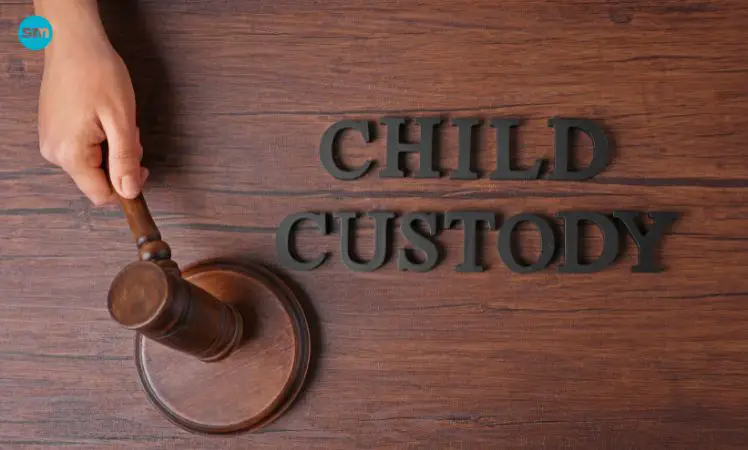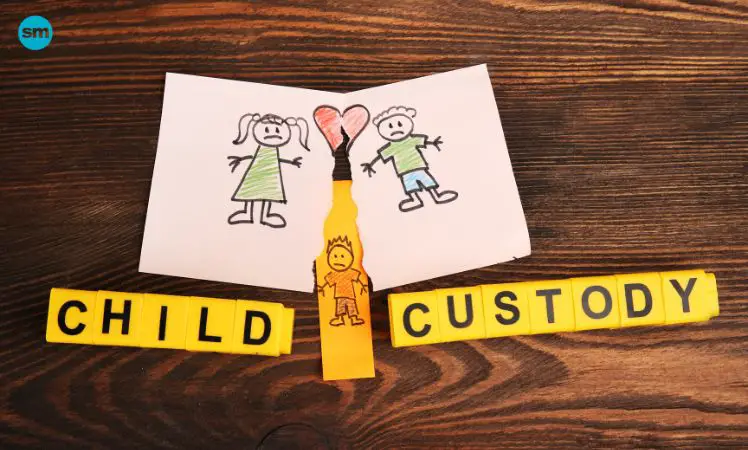Last Updated on January 23, 2024 by Lori Pace
Many parents find that determining child custody is the most difficult and important part of a divorce. If children are involved, the court or parents must decide how the custody issues will be handled. This includes who will make the decisions for the children, how visitation will work, and whether the court will rule.
This overview provides key information about child custody for divorcing parents and answers many of the most common custody questions.
Who Decides Child Custody?
Courts will weigh any agreement parents make regarding child custody, as in most family law cases. A judge will most likely approve a custody arrangement if parents work together. Parents should work together to ensure that they have control over what happens to their children after a divorce or separation.
If you have tried to talk with your spouse, or participated in child custody mediation but are still not at an agreement on how to divide custody and visitation, the judge will make the final decision. Most states require that the judge investigate and consider specific factors in order to make a custody decision. A judge will enter a child custody order. It is binding and enforceable by both parents.
Types Of Custody Arrangements
There is no universal custody arrangement. Your final custody plan should be tailored to your family’s needs. The final custody order should address both physical custody (with whom the child lives) and legal custody (which the parent is responsible for making decisions regarding the child’s education). The majority of custody orders divide custody in one or more of these ways:
- One parent has sole legal and one physical custody
- Joint (shared), physical custody
- Joint physical custody and joint custody with legal custody
- Joint physical custody (rare) and sole legal custody (rare).
A visitation schedule is usually created by the judge when a court order gives sole physical custody to one parent. This ensures that the child can have a good relationship with both parents.
How Courts Make Child Custody Decisions
Most courts will use a standard that gives the “best interest of the child” the highest priority in deciding custody matters. Many factors determine the best interests of the child.
These factors are not likely to favor one parent over another; courts tend to concentrate on which parent will provide the child with a stable home and foster the child’s relationships with the other parent. This might be the case if the child is still young. An older child might be subject to a court’s best interest evaluation. This could favor the parent, who can provide continuity in education, religion, and peer relationships.
Judges might order a custody evaluation in difficult child custody cases, such as when one parent claims the other is “unfit. Even if a judge refuses to order one, parents can request a custody assessment. A child custody evaluator will provide recommendations and information that will assist the judge in making a decision about what is best for the child.
How To Modify A Child Custody Arrangement
Judges in almost every state have one priority when deciding custody cases: to ensure stability for the child. Parents may find it difficult, but not impossible to change existing custody orders. Judges understand that family circumstances can change and might need to be updated.
Most states require that the parent requesting modification of custody or visitation must show that there has been a significant change in their circumstances. The parent must also prove that the current order is not in the best interest of the child. If the court agrees that the case is reviewed, the judge will examine the new circumstances in light of the same best interests standards as those listed above.
Are Courts More Likely To Award Child Custody To Mothers Than To Fathers?
Most courts and states have rejected this preference or reduced it to tiebreakers if two equally qualified parents ask for custody of their preschool children. A judge cannot award custody of a child to a mother without considering the fitness of both parents. Most states require that custody be determined by the court based on the best interests of the child and not the gender of the parents.
You can ask the court to grant physical custody to a father if you don’t mind gender stereotypes. You might be on the same side if the mother works full-time and the children have after-school care. The judge will consider what is best for the children in any case. If you feel that you have the right to primary custody, and you are able to convince the judge that this is in the children’s best interests, then you should ask for custody. It will help to end any prejudices against you as a father if you are a willing and able parent.
Many divorcing parents will come together to decide what is best for their child, regardless of whether or not they are divorced. Some couples may agree that the mother will have custody while the father will have reasonable visits. This is because the mother has more time and inclination to help the child. If the custody arrangements are in the best interest of the child, judges usually approve them.
Effects of Parent’s Chances of Getting Custody If said Parent Moves Out and Leaves the Kids With The Other Parent
It is possible. The court could interpret the parent’s decision as a signal to the court that one parent is more qualified to take permanent physical custody. A judge may be reluctant to give physical custody to the children if they remain in the home of their parents as a family and continue attending the same school. The court might view any further changes as an unneeded disruption to the children’s routines.
Let’s say a parent has to leave the family home, but still wants to be the primary physical custodian of the children. If the parents have not reached an agreement that the move will be temporary and not affect permanent custody, the moving parent should bring the children with him or her and file a request in family court for temporary custody.
Special Issues For A Gay Or Lesbian Parent
The court will generally consider the sexual orientation of a parent only if it has a negative impact on the child. Imagine a parent having an abusive relationship with their child’s same-sex partner. This could lead to domestic violence in which the child has to move between homes and hospitalizations. The court will not award custody to the parent in this case. If the judge considers that parent “fit”, the court will assign parental responsibility to the other parent.
Judges who cannot overlook their prejudices when evaluating the best interests of a child might discriminate against lesbian, gay, or transgender parents. These judges may be motivated by prejudices from their community or their own. They might attempt to hide the true reason for their decisions by citing issues other than the lesbian/gay parent’s sexual orientation in order to deny custody and appropriate visitation.
Who Determines How Much Visitation Is Reasonable And Fair?
A court will give physical custody to one parent, and “reasonable visitation” to the other. The parent with physical custody usually has the right to decide how much and when it is reasonable. The relationship between parents can often affect a noncustodial parent’s visitation, even if they have a set schedule or calendar. If a custodial parent wants their child to have a relationship with the other parent, it is more likely that they will work together to create a reasonable visitation arrangement.
An order that one parent has “reasonable” visits can lead to the noncustodial parent fighting for the time the child needs. Many courts require parents to create a detailed parenting plan. This will outline the visitation schedule, and who is responsible for making decisions about the children. If parents cannot agree, the court will make a schedule that the parents can follow. The standard visitation arrangement may include significant summer visitation, school breaks, and weekends on alternate weekends.


